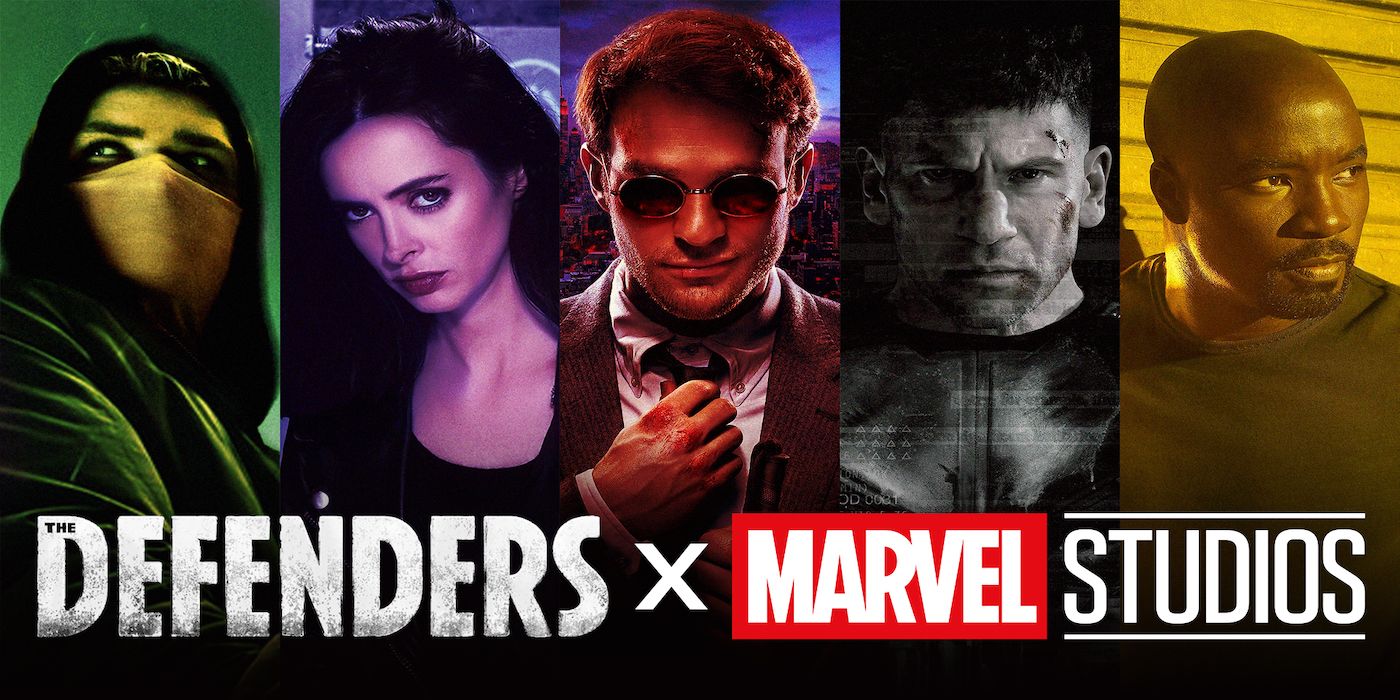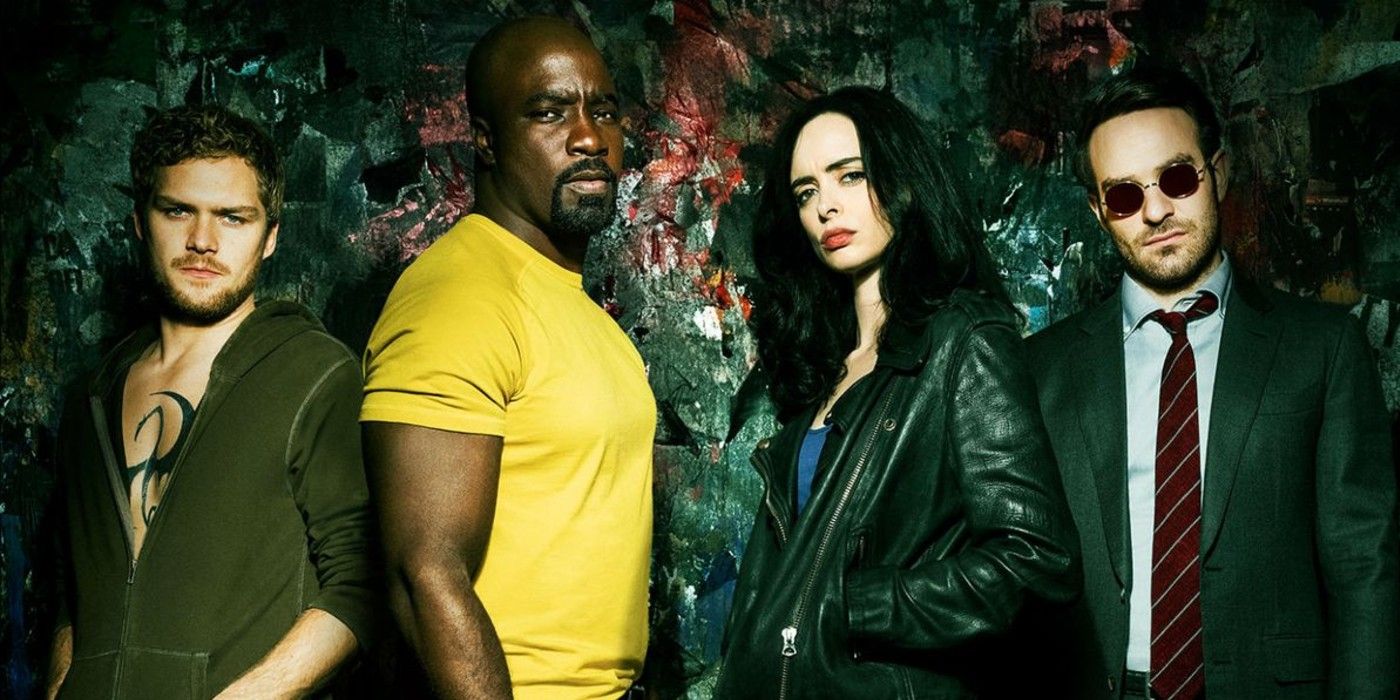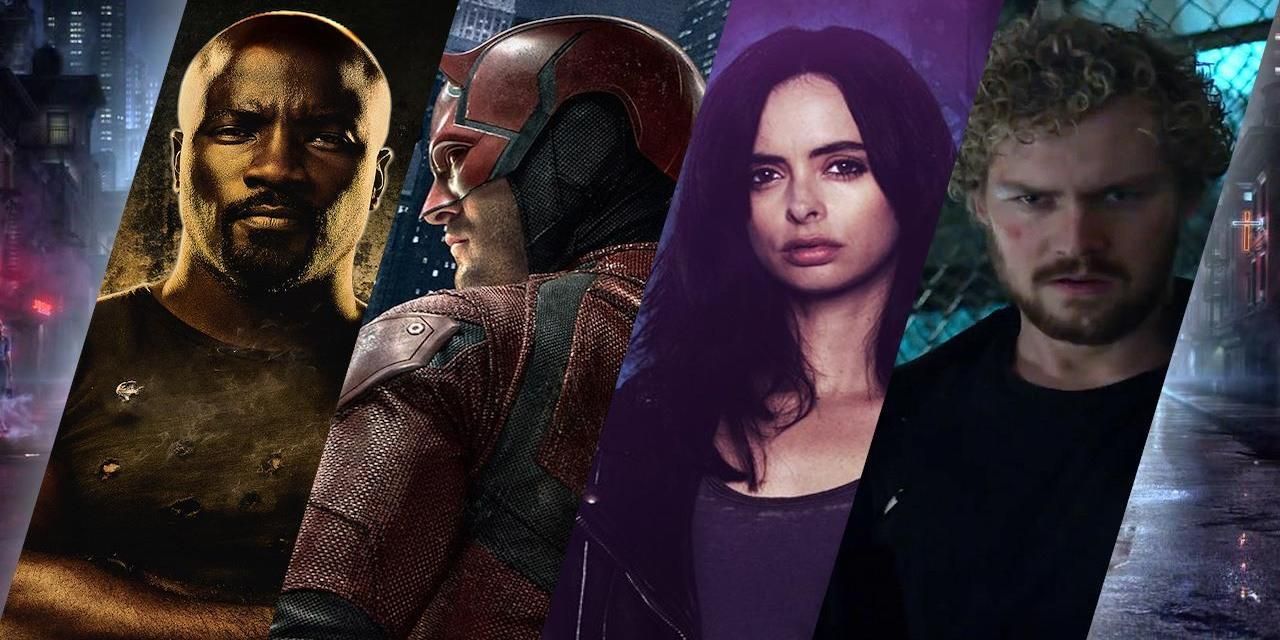Marvel and Netflix made the MCU a truly multi-platform enterprise in 2015. For two years, Marvel's Agents of S.H.I.E.L.D. had shown that audiences were willing to engage with the MCU away from the silver screen. Marvel wanted to use that knowledge to grow its audience, but it needed a reliable partner to do so. Before Marvel’s Avengers started teaming up with heroes across the galaxy to defeat Thanos, the MCU teamed up with Netflix to try and bring balance to its cinematic universe. The project was planned as four Marvel Netflix shows — Daredevil, Jessica Jones, Iron Fist, and Luke Cage — and it went on to include Punisher and The Defenders.
The Netflix heroes offered something that the MCU sorely lacked in those days: humanity. The shows pulled back from the galaxy- and world-saving antics of the MCU to focus on heroes as people. The shows also introduced some much-needed diversity in Marvel’s universe. The MCU’s first female lead and first black lead, as well as its first genuine looks at disability, mental health, and addiction, all came from the Netflix shows. The grounded stories of Marvel’s New York-based superheroes weren’t perfect, but they added much-needed depth to the MCU and proved that there’s an audience for more than action comedies in the Marvel universe.
Welcome to Hell's Kitchen
Airing on April 10, 2015 Daredevil’s first season was, in many ways, better than the big-screen Marvel adventures that had come before it. It featured some of the best performances the MCU has ever seen. Charlie Cox’s Matt Murdock is endlessly sympathetic while remaining undoubtedly hardcore. Vincent D’Onofrio is chilling as Kingpin. When the second season introduces Elektra and the Punisher, things really take off. The Punisher was so popular he even scored his own spin-off series.
The real star of Daredevil, though, is the action. Its first season includes the now-famous “hallway scene”. The MCU’s fight choreography has never been better than it was in Daredevil. The show single-handedly demonstrated that smaller-scale stories could still pack a punch.
If Daredevil proved that audiences had an appetite for stripped-down heroes, then Jessica Jones cemented the point. In November of 2015, her show’s first season offered the grittiest superhero excursion the MCU had ever seen. The grit was more than just a "vibe." The season's plot revolved around, essentially, a domestic abuse drama rather than a save-the-city adventure. David Tennant co-starred as the unnerving Purple Man, Jessica Jones' obsessive ex, who can control anybody with a single command. The show also gave viewers their first look at Luke Cage, who was scheduled to get his own show sometime after Iron Fist was released.
Despite, or maybe because of, the grit and close-to-home drama, audiences fell in love with Jessica Jones. The excitement coming out of her first season marked the high point for Netflix's superhero series.
Big Trouble in the Big Apple
Luke Cage was so popular on Jessica Jones that Netflix moved their schedule. They made his show third in their line-up. Luke Cage launched in September of 2016, led by showrunner Cheo Hodari Coker.
Luke Cage distinguishes itself by fully inhabiting its world and characters. Harlem is more fleshed-out than Daredevil’s and Jessica Jones’s Hells Kitchen. Luke Cage's personal connection to the neighborhood and its history makes him more real as a character. Viewers love Luke because they feel like they know him. Coker has talked about the importance of authenticity in on-screen representation. He has said that Luke Cage owes its own authenticity in part to a writing team that was majority Black and "majority geek."
The critical success of Luke Cage backs up Coker's point. The underwhelming response to Netflix's next Marvel property, Iron Fist, does the same. Iron Fist has arguably always been a supporting character for Luke Cage. The two characters shared a comic series back in the day because neither were doing particularly well on their own. Netflix's Iron Fist is plagued by a lack of "authenticity" both in its story and lackluster performances. More than anything it highlights the problem that was the undoing of Marvel's and Netflix's team-up.
Defending the Universe
If Netflix proved there was widespread demand for varied voices and stories in the MCU, then what went wrong? The Netflix experiment failed because it couldn’t let go of the key MCU movie marketing formula. Every individual series built towards an inevitable crossover event, just like the MCU movies built to Avengers in 2012. After every hero got their moment in the spotlight, they came together for The Defenders. To make a long story short, it tanked.
Building individual movies to a crossover transformed Marvel from a comic book publisher to a multi-billion dollar media giant. But asking fans to watch a few movies, over the course of years (there were four years between Iron Man and Avengers), is not at all the same ask for television series.
The average Marvel super-fan wanting to see every piece of content that supported Avengers would need to have watched 5 other films, roughly a 13-hour commitment. Doing the same preparation for The Defenders would involve watching 5 previous television series, all 13 episodes long. That’s approximately 65 hours of binge watching. As The Defenders streaming numbers show, most fans couldn’t cut it. When the shows continued solo after the crossover, they'd lost most of their viewers. What had been a novel technique with the films felt like a marketing gimmick, or a homework assignment, when it was translated to the small screen.
With Netflix, Marvel discovered that there’s a limitless audience for its properties if they’re willing to tell a wide variety of stories. They also, hopefully, learned that strict adherence to an interconnected universe doesn’t work at scale. If the MCU wants to last for decades more, it needs to commit not just to unique stories, but self-sufficient ones.



